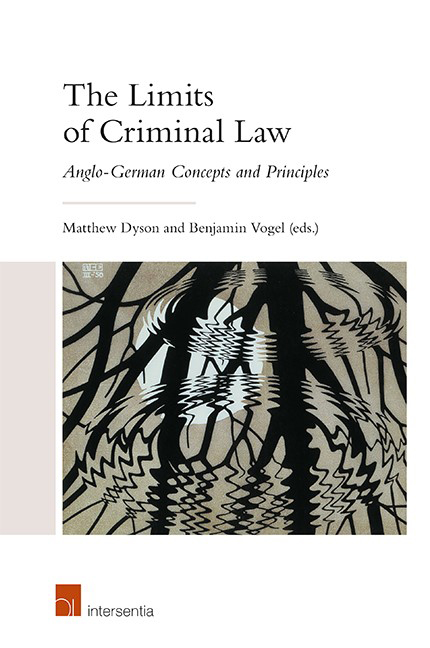Book contents
- Frontmatter
- Preface
- Contents
- List of Cases
- List of Abbreviations
- List of Contributors
- Chapter 1 Introduction
- PART I CORE PRINCIPLES OF CRIMINAL LAW
- PART II CRIME AND TORT
- PART III CRIME AND MEDICAL
- PART IV CRIME AND REGULATION
- PART V ADMINISTRATIVE SANCTIONS
- PART VI ALTERNATIVE ENFORCEMENT
- PART VII COUNTER-TERRORISM
- PART VIII CRIME AND INTELLIGENCE
- PART IX CONCLUSION
- Index
- About the Editors
Chapter 22 - Counter-Terrorism Compared: The Limits of Fair Attribution
Published online by Cambridge University Press: 11 February 2021
- Frontmatter
- Preface
- Contents
- List of Cases
- List of Abbreviations
- List of Contributors
- Chapter 1 Introduction
- PART I CORE PRINCIPLES OF CRIMINAL LAW
- PART II CRIME AND TORT
- PART III CRIME AND MEDICAL
- PART IV CRIME AND REGULATION
- PART V ADMINISTRATIVE SANCTIONS
- PART VI ALTERNATIVE ENFORCEMENT
- PART VII COUNTER-TERRORISM
- PART VIII CRIME AND INTELLIGENCE
- PART IX CONCLUSION
- Index
- About the Editors
Summary
Terrorism offences ‘sit at the very limits’: the limits here mean not only a physical, liminal space, but also on the edge of the conceptual brakes or constraints the criminal law can apply. There are a number of key limitations, but the overarching question in the two chapters is where limits come from: are counter-terrorism purposes limited by rules of criminal law, constitutional law or something else, and how far can the fear of terrorism take us from our established structures of norms. One trend is away from the established legal categories, and their known abilities to limit the reach of the criminal law, and into a brave new world. However, what lies ‘beyond the limits of criminal liability’ differs by country.
In both England and Germany, counter-terrorism is not confined to the criminal law, but extends to other instruments, notably administrative preventive measures, immigration law and intelligence law. A large part of legal debates on terrorism and the law circles around two separate questions: on the one hand, whether those non-criminal measures effectively circumvent criminal law safeguards and whether the criminal law should therefore play a greater role; on the other hand, whether the adaptation of the criminal law to terrorist threats dilutes criminal law's safeguards and whether non-criminal measures should instead be given greater prominence in order to protect the integrity of the criminal law. What characterises both questions is the observation that the borders between the criminal law and other areas of law are increasingly blurred and that clear criteria for maintaining those borders and the respective safeguards they embody are often not clearly discernible.
In that light, probably the most significant difference between the two jurisdictions is the long-standing presence, in Germany, and the absence, in England and Wales, of a body of law known as police law. Police law has long historical roots and creates an important distinction from criminal law. Police law is proactive, and responds to dangerousness, rather than to past wrongdoing as the criminal law does. As further explained by Arslan and Brodowski in this volume, it is a category given meaning by its exclusively forward-looking preventive nature, framed and specified by an extensive jurisprudence of administrative courts and the Federal Constitutional Court.
- Type
- Chapter
- Information
- The Limits of Criminal LawAnglo-German Concepts and Principles, pp. 467 - 476Publisher: IntersentiaPrint publication year: 2020



